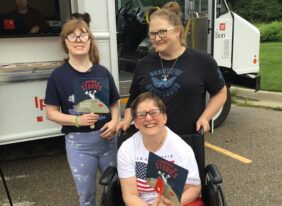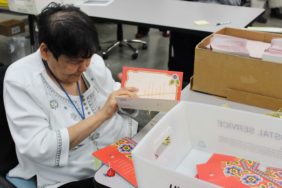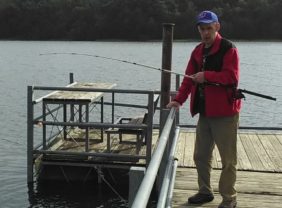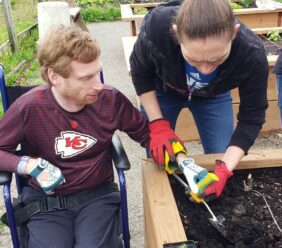Work Enrichment serves adults with multiple challenges who desire options for paid work, volunteer
experiences, and opportunities for personal achievement. These services benefit individuals who succeed in a
supported work environment. We provide support in many different areas, including work skills, community
involvement, maintaining or improving communication and social relationships, and wellness. This includes
hands on help with personal care, working, dining, and while participating in learning or leisure activities.
Satisfaction Survey Results: Persons served, 93% satisfied.
Paid/volunteer work
At Cottonwood Incorporated, we agree with Tom Pomeranz that Work builds self esteem and confidence; work changes perceptions of the community at large about people with disabilities. This is true whether individuals are providing paid work at our work center or taking on volunteer opportunities in the community. Work Enrichment offers individuals with more severe disabilities the opportunity for employment and community partnerships.
Learning and Recreation
Work Enrichment weaves work and learning into individual's daily lives. Each work day includes several learning bursts of focused activity toward specific learning objectives in the areas of human interaction, movement, and sensory experience. Individuals also have access to enriched opportunities for learning, such as dance or art class sponsored at The Lawrence Arts Center, music movement therapy, weekly trips to the Lawrence Public Library, and visits to local museums, galleries, and parks.
Daily Activities
Individuals are exposed to a variety of individual and small group learning experiences. A sample day includes pursuing hobbies, creating art, working, maintaining or improving independent skills, exercising, gardening, volunteering and touring local attractions and businesses. Work Enrichment promotes productive, self-affirming daily activities.

Training
We provide essential skill training in support of individual Action Plans. Individuals may receive training in functional academics (reading and writing skills), self-care, personal and social adjustment, community awareness, leisure, recreation, work skills and physical development.



